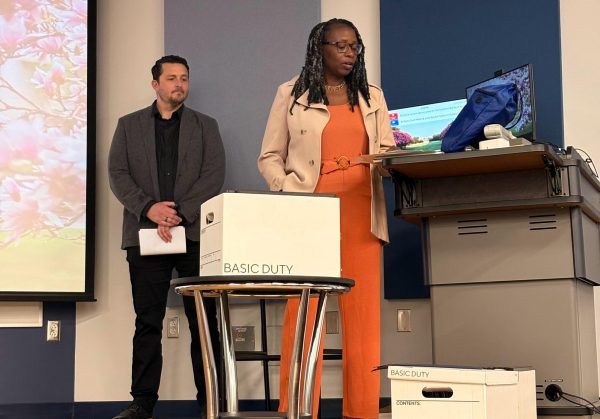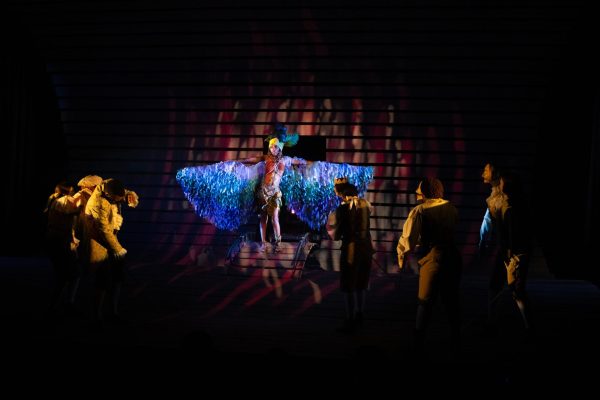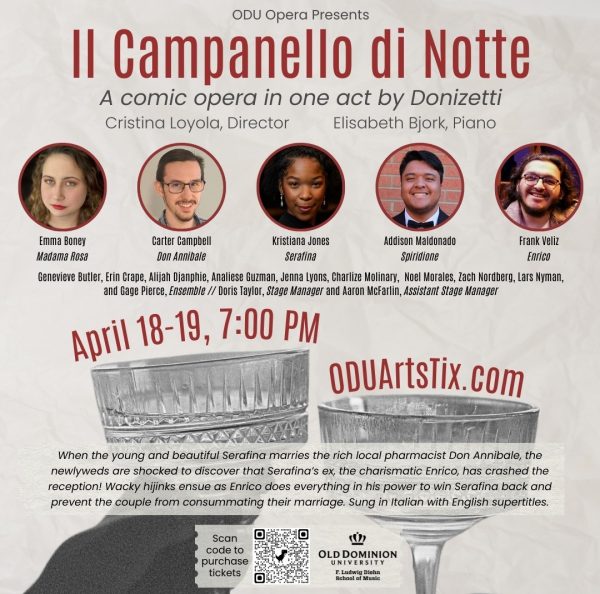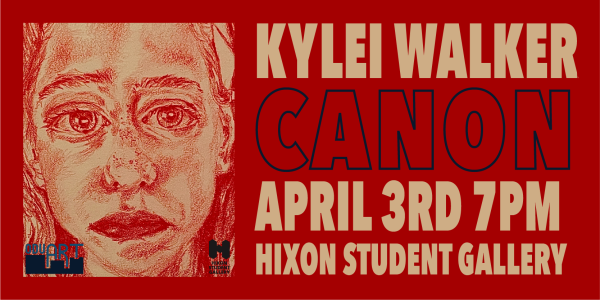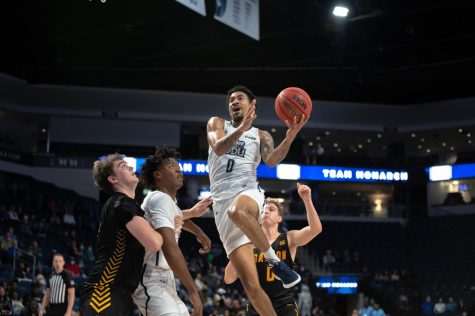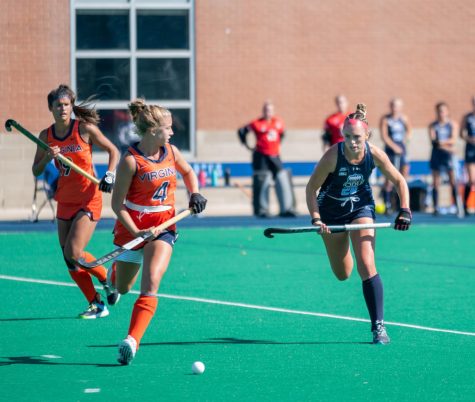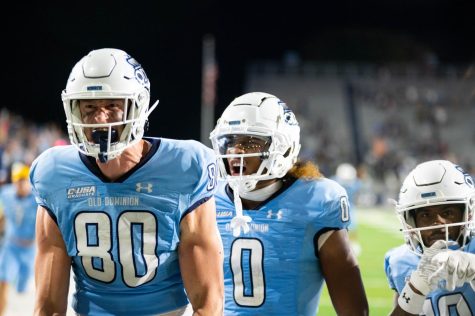GIRL: Print and Literature Students Collaborate on a Zine
ODU’s theme for the fall 2021 school year is Arts & Social Justice, making the Themester the first ODU has ever held. With an emphasis on connection between the world and coursework, many classes have been altered to fit the Themester, and special exhibitions and events are held under the theme.
Professor Kelly Morse had a different take on her entry level literature classes this year. She always teaches Jamaica Kincaid’s “Girl”, asking students to compose a piece based on their lived experiences, and the impact of societal pressures on them, in the same format as the original.
“I have taught “Girl” for the past 4 years that I’ve worked at ODU,” said Morse, “it’s actually the very first piece of literature that I give to the students because it has a very unusual format and kind of surprises them. Because people often have a misconception as to what studying literature is. They think it’s something that doesn’t relate to their lives, a lot of times students have lost their love of reading. It’s a very short piece, but it’s a very deep piece. The main character, you see her progress from [age] 11 to a young adult woman … over the years when I have them do an imitation, it always really speaks to them, even though it’s from the late 70s. It’s a way for them to interact and talk about gender roles, and what has changed, and what hasn’t changed.”
“I’ve done this imitation for a few years now, and the students wrote beautiful, sad, heartbreaking wonderful things, but only I ever saw them. And then when this art and social justice [themester] came up, then it seemed like ‘oh, well this seemed like a great opportunity for more than just me [to] see these creative works, that other people could see it.”
When Morse introduced “Girl”, she tried to help all of her students see that they experience common pressures. “[I] asked the room how many people in this room have been told to smile, because they will look prettier when they smile, and all the female bodied [students] raised their hands,” she said, “and there was a moment, where all the male students went ‘whoa’.”
“Men have intense pressures, too, and it gets compounded if you are a man of color, if you are LGBTQIA+, it just gets really complicated,” Morse said. “And so it’s a way for them to get to know themselves and know each other through this very safe format.”
This semester, she partnered with printmaking Professor Brendan Baylor. Students in Morse’s literature class are given the opportunity to print their piece. They are working together with Baylor’s printmaking students, who are designing covers and hand printing them to create a zine.
“The prompt is really helpful because it’s about students talking about their own experiences, what are the messages that they’ve gotten as they’ve been raised… in our society,” said Baylor. “Everyone has a story to tell that relates to that, because we’ve all been raised within this society to be a certain way. Maybe not all the same way, but definitely we’ve been raised to be a certain way. The students have a lot to respond to for their own personal experience. And my students, when they see these writings, they say ‘oh, I’ve heard that, people said that to be before, I’ve heard a lot of these things before.’”
“And that was from men and women, obviously women are not the only people who think about gender and have gender enacted on them. So it’s been really great to see the students taking it on and making it their own.”
The students are given design freedom. Some are designing covers similar to book covers, while others are producing something that’s about “creating a visual analogue to the writing.” Baylor intentionally gave the students flexibility because their creation was based on their own experiences, and he wanted to see how that would be represented in the cover.
The zines will all have the same content inside of them. However, they will have different covers. Many of them will be hand printed using screen printing, but there will also be pamphlets printed on printer paper. Students who contributed will each get a copy, and leftover zines will go to Eleanor’s Norfolk Bookstore after the reading event on Dec. 2.
Both Baylor and Morse are deeply invested in how the zine presents the students participating.
“I think the power to tell stories, especially stories that aren’t traditionally told, there’s always room for more of that,” said Morse.
“I hope it encourages them to realize their voices have value,” Morse said. “Traditionally in literature, for hundreds of years and thousands of years, the voices and literature were educated, privileged white men of the upper class, and so that ends up being who you study. There’s been a big shift over the years, but … it hasn’t been that long since women, and writers of color, and working class folks have had the opportunity to write, because they weren’t taught to read.”
“In some ways it’s just so unbalanced, that there is an overwhelming wealth of literature about a certain kind of person’s experiences,” said Morse. “This is a way to sort of help that balance, because if you don’t see your life reflected in writing, in some ways it can make people feel invisible, or not valued.”
“Making culture is part of how we make our society. So by giving our students an opportunity to make culture, and make culture publicly, it’s a way of showing them the power that they have to affect and change society,” said Baylor.
As ODU’s student body is so diverse, he finds it interesting to see the differences in stories and vast variation between cover designs. This gives the students the opportunity to speak on the ways they fit and don’t fit.
“In a lot of ways they’ve been told that they don’t have a lot of power, or that their voice isn’t important, and so by giving everyone a platform to have their voices heard, we’re able to make a more inclusive society,” said Baylor. “ That’s the purpose of the project, to give students a sense of their own power.”
The zine is aptly named “Girl” after the prose-poetry piece that spurred it all.
It’s about “the power to tell stories, especially stories that haven’t been told,” said Morse. “The work is deeply personal, but that’s what’s so powerful about it.”

Sydney Haulenbeek is an English major and senior, graduating in May of 2023. Before becoming the Editor in Chief of the Mace & Crown she worked as...


